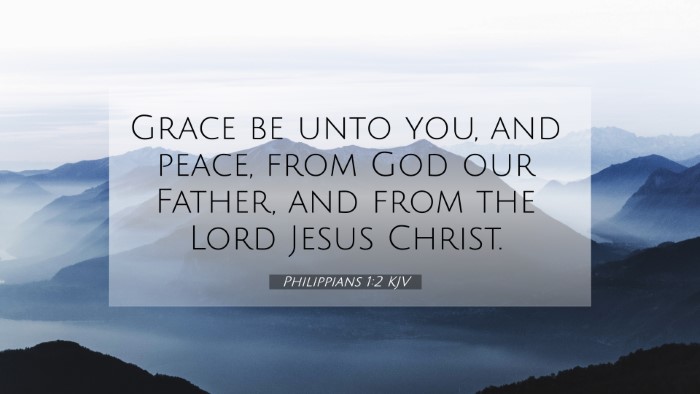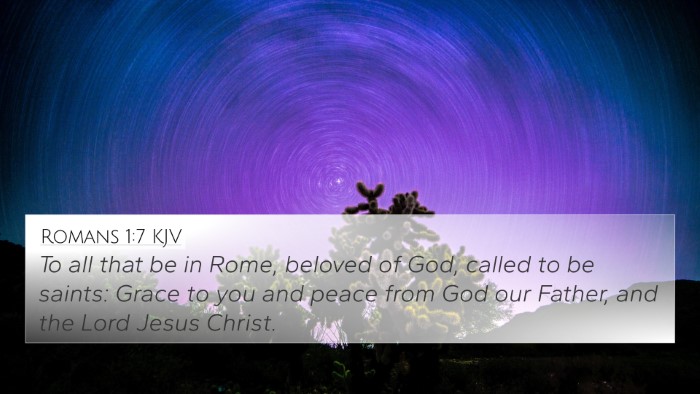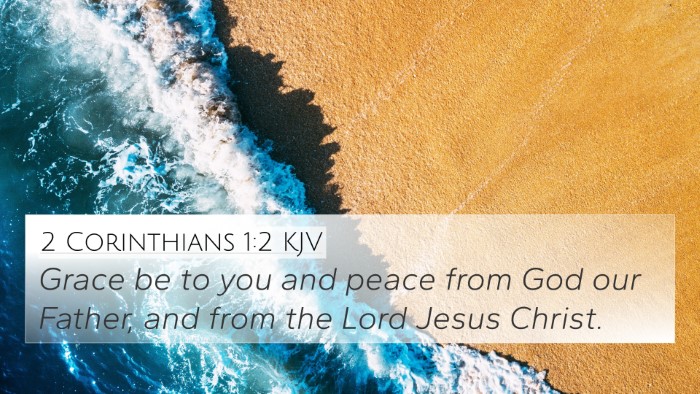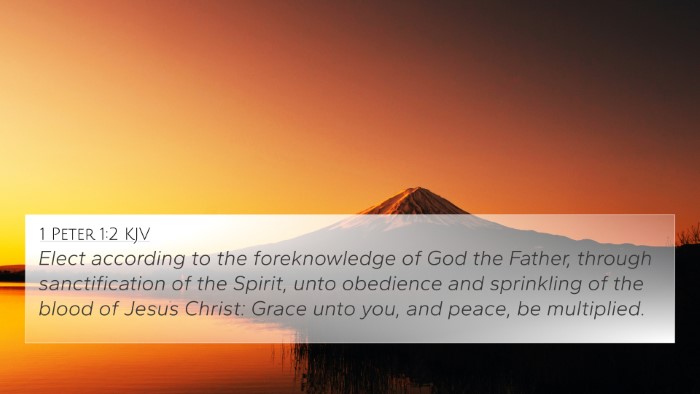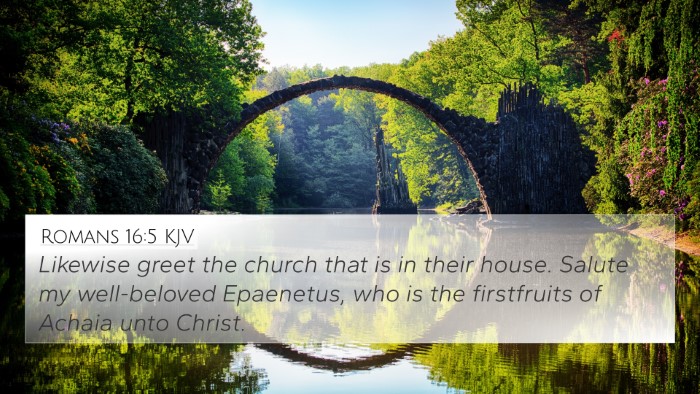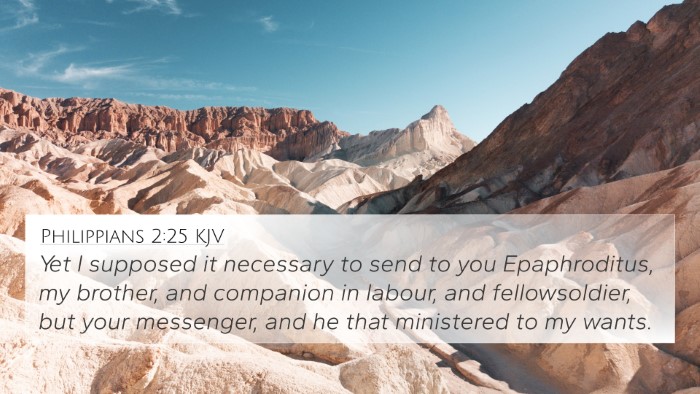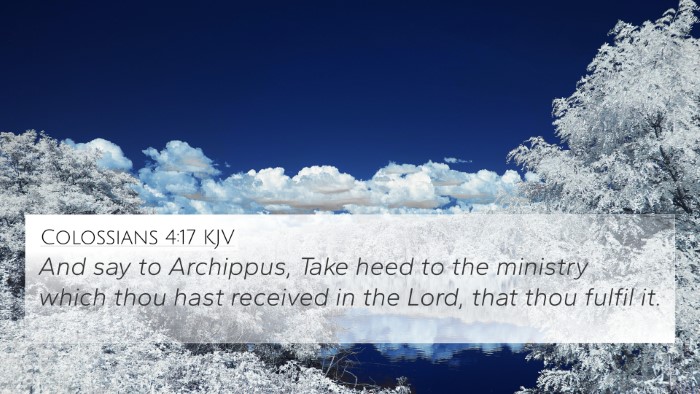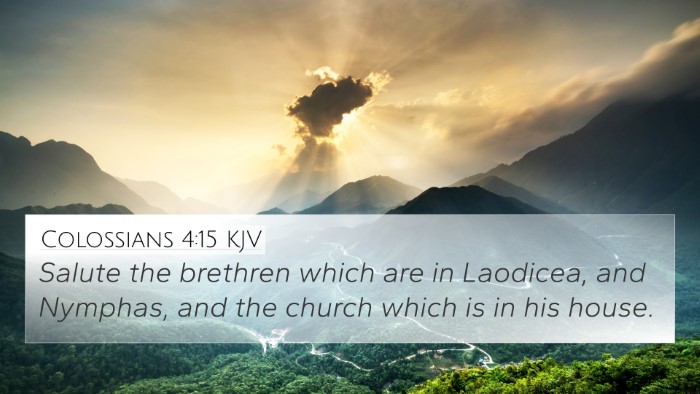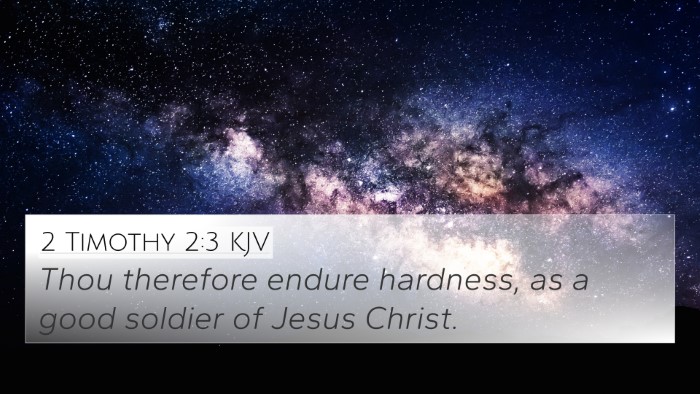Bible Verse: Philippians 1:2
Verse Text: "Grace be unto you, and peace, from God our Father, and from the Lord Jesus Christ."
Summary of Meaning:
Philippians 1:2 encapsulates the essence of grace and peace as gifts from God and Jesus Christ.
This verse not only signifies a common greeting in the early Christian community but also serves
as a profound reminder of the theological doctrines of grace and the divine peace that believers
are meant to experience.
Insights from Public Domain Commentaries:
-
Matthew Henry:
Henry emphasizes that the salutation is not merely formal; it is an invocation of divine favor.
He points out that 'grace' refers to God's unmerited favor, highlighting the believer's need
to constantly rely on God’s grace throughout their spiritual journey. Peace, he explains,
encompasses both inner tranquility and harmony in relationships.
-
Albert Barnes:
Barnes notes that the order of 'grace' before 'peace' is significant, as one cannot experience
true peace without first receiving God’s grace. He also highlights that this greeting reflects
Paul’s pastoral concern for the spiritual well-being of the Philippians, fostering unity and
spiritual growth within the church.
-
Adam Clarke:
Clarke draws attention to the significance of the source of grace and peace: God the Father
and Jesus Christ. He interprets this relationship as a reminder of the foundational Christian
belief in the Trinity, while also asserting that this dual attribution serves to remind believers
of the harmony and unity within the Godhead as the source of their spiritual blessings.
Connections between Bible Verses:
-
John 1:16: "And of his fullness have all we received, and grace for grace."
This verse parallels Philippians 1:2 by emphasizing the abundance of grace available to believers through Christ.
-
Romans 5:1: "Therefore being justified by faith, we have peace with God through our Lord Jesus Christ."
Romans highlights the peace resulting from faith, complementing the peace mentioned in Philippians 1:2.
-
2 Corinthians 1:2: "Grace be to you and peace from God our Father, and from the Lord Jesus Christ."
This verse mirrors Philippians 1:2, reinforcing the apostolic greeting as a common expression of Christian love and unity.
-
Ephesians 1:2: "Grace be to you, and peace, from God our Father, and from the Lord Jesus Christ."
Similar to Philippians, this passage consistently underscores grace and peace as vital components of Christian faith.
-
Colossians 1:2: "To the saints and faithful brethren in Christ which are at Colosse: Grace be unto you, and peace."
Another parallel, this verse illustrates the universal nature of Paul's greetings to various churches.
-
Romans 1:7: "To all that be in Rome, beloved of God, called to be saints: Grace to you and peace from God our Father, and the Lord Jesus Christ."
This shows the consistent theme of grace and peace in Paul’s epistles, reflecting his pastoral heart.
-
1 Thessalonians 1:1: "Paul, and Silvanus, and Timotheus, unto the church of the Thessalonians which is in God the Father and in the Lord Jesus Christ: Grace be unto you, and peace."
This reiteration emphasizes the pastoral concern and theological continuity throughout Paul's letters.
-
Hebrews 13:20: "Now the God of peace, that brought again from the dead our Lord Jesus, that great shepherd of the sheep, through the blood of the everlasting covenant."
This verse identifies God as the source of peace, aligning with the message in Philippians concerning God's role in providing peace.
-
Revelation 1:4: "John to the seven churches which are in Asia: Grace be unto you, and peace, from him which is, and which was, and which is to come."
This emphasizes the ongoing relevance of grace and peace throughout the Christian mission as revealed in biblical prophecy.
-
James 1:17: "Every good gift and every perfect gift is from above, and cometh down from the Father of lights."
This verse underscores the idea that grace is a gift from God, connecting the theological essence of grace found in Philippians 1:2.
Conclusion:
The message in Philippians 1:2 serves as a foundational reminder of the grace and peace that believers are to possess, deeply rooted in their relationship with God the Father and the Lord Jesus Christ.
The interconnectivity of this verse with other biblical passages reinforces the thematic significance of grace and peace throughout the entire Scripture,
illustrating the rich tapestry of biblical teachings and enabling a deeper understanding of the faith.
By exploring these other Bible verses, readers can appreciate the connections between Biblical texts, enhancing their comprehension of the core messages within the New Testament and beyond.
Engaging in comparative Bible verse analysis and utilizing tools for Bible cross-referencing amplifies one’s ability to uncover these inter-Biblical dialogues,
ultimately enriching their spiritual understanding and experience.


